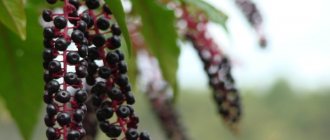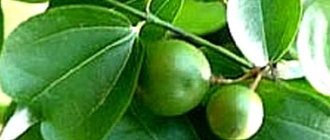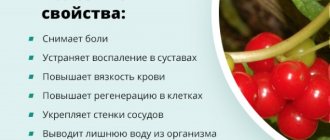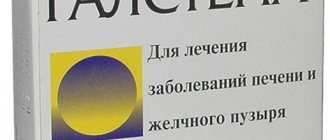It is better to take care of your health starting from a young age. The modern rhythm of life, food and ecology have a harmful effect on human organs, provoking various diseases.
In order to treat diseases of the abdominal organs, in particular organs such as the liver, gallbladder and bile ducts, many medicines have been created.
One of these is Hepel, available in tablet form. It is distinguished by its structure, which is based on herbal components, which classifies the medicine into the category of homeopathic drugs.
Hepel has antidiarrheal, choleretic, antispasmodic, hepatoprotective and anti-inflammatory effects.
In this article we will look at instructions for use, contraindications and side effects, price and analogues of the drug. At the end of the article you will find reviews, as well as opinions of people who have already used the medicine.
Composition and release form:
Hepel - tablets .
White-orange in color, flat-cylindrical in shape, chamfered, odorless. Tablets may be painted white. Pack 50; 250 tablets. Hepel is a solution for injection. In ampoules of 1.1 ml. The solution is transparent, not colored, odorless and tasteless. Pack of 5; 10; 50; 100 ampoules.
Hepel - tablets:
- Active ingredients (in 1 tablet): Colocynthis D6 – 90 mg, Chelidonium D4 – 30 mg, Lycopodium D3 – 30 mg, Nux moschata D4 – 30 mg, China D3 – 30 mg, Phosphorus D6 – 15 mg, Carduus marianus D2 – 15 mg, Veratrum D6 – 60 mg.
- Auxiliary ingredients: lactose and magnesium stearate.
Hepel – solution for injection:
- Active ingredients (in 1.1 ml); Chelidonium D3 – 0.1 ml, Lycopodium D2 – 0.1 ml, Nux moschata D3 – 0.1 ml, China D2 – 0.1 ml, Phosphorus D5 – 0.05 ml, Carduus marianus D1 – 0.05 ml, Colocynthis D5 – 0.3 ml, Veratrum D5 – 0.2 ml.
- Auxiliary ingredients: water for injection.
Pharmachologic effect:
Hepel - homeopathic tablets or solution for injection of a complex composition. The drug has anti-inflammatory, hepatoprotective, choleretic, antispasmodic and antidiarrheal properties, which allows it to be used for diseases of the hepato-biliary system. In case of inflammatory processes in the biliary tract (cholangitis or cholecystitis), the use of the drug against the background of the use of Injeel-Chol and Chelidonium-Homaccord is justified. If the disease is accompanied by a gastrocardial symptom complex or develops against the background of gastritis, use homeopathic remedies Nux vomica-Homaccord and Gastricumeel. If the patient has panctheatopathy, then Hepel is prescribed in combination with Hepar suis-Injeel and Ceanothus-Homaccord. For lesions of the liver parenchyma, treatment results are better if the drug is prescribed together with Injeel-Chol and Chelidonium-Homaccord. It is also recommended to use the drug for appetite disorders, bloating, polyarthritis, eczema, acne - to stimulate the detoxification activity of hepatocytes.
Indications for use of individual components of Hepel:
- Carduus marianus - for chronic pathology of the hepatobiliary system caused by congestion in the veins of the extremities, pelvis and portal vein system. It is also used in the treatment of hemorrhoids.
- Lycopodium - for any diseases of the liver and bile ducts, digestive disorders, acute and chronic skin diseases, for disorders associated with entering old age, as well as for pathological mood disorders or changes in behavioral reactions.
- China is used to relieve acute diarrhea, and is also used in the treatment of biliary colic, dyspeptic disorders, general exhaustion of the body and skin rashes.
- Chelidonium is prescribed for stone formation in the bile ducts and for chronic pathology of the hepatobiliary system.
- Veratrum - recommended for progressive heart failure due to infectious diseases, as well as in the case of neuralgia, diarrhea, excessive excitability with neurotic disorders.
- Phosphorus - for severe infectious diseases, exhaustion, inflammatory diseases of the digestive organs, and disorders of behavior or mood.
- Nux moschata is a disease of the digestive system with the predominant symptom of increased gas formation.
- Colocynthis is effective for painful spasms that occur in the biliary tract and intestinal wall.
Indications for use:
- Diseases of the bile ducts and liver (chronic hepatitis, cholelithiasis, chronic cholecystitis, chronic cholangitis);
- intestinal dysbiosis;
- chronic enteritis;
- chronic colitis;
- as part of complex therapy for skin diseases (for example, acne, allergic dermatitis or eczema).
Hepeel
Release form, composition and packaging
The tablets are white-orange in color, flat-cylindrical in shape, chamfered, odorless. Tablets may be painted white. Pack 50; 250 tablets.
Active ingredients (in 1 tablet):
- Colocynthis D6 – 90 mg,
- Chelidonium D4 – 30 mg,
- Lycopodium D3 – 30 mg,
- Nux moschata D4 – 30 mg,
- China D3 – 30 mg,
- Phosphorus D6 – 15 mg,
- Carduus marianus D2 – 15 mg,
- Veratrum D6 – 60 mg.
Auxiliary ingredients: lactose and magnesium stearate.
pharmachologic effect
Hepel - homeopathic tablets or solution for injection of a complex composition. The drug has anti-inflammatory, hepatoprotective, choleretic, antispasmodic and antidiarrheal properties, which allows it to be used for diseases of the hepato-biliary system. In case of inflammatory processes in the biliary tract (cholangitis or cholecystitis), the use of the drug against the background of the use of Injeel-Chol and Chelidonium-Homaccord is justified. If the disease is accompanied by a gastrocardial symptom complex or develops against the background of gastritis, use homeopathic remedies Nux vomica-Homaccord and Gastricumeel. If the patient has panctheatopathy, then Hepel is prescribed in combination with Hepar suis-Injeel and Ceanothus-Homaccord. For lesions of the liver parenchyma, treatment results are better if the drug is prescribed together with Injeel-Chol and Chelidonium-Homaccord. It is also recommended to use the drug for appetite disorders, bloating, polyarthritis, eczema, acne - to stimulate the detoxification activity of hepatocytes.
Indications for use of individual components of Hepel
Carduus marianus - for chronic pathology of the hepatobiliary system caused by congestion in the veins of the extremities, pelvis and portal vein system. It is also used in the treatment of hemorrhoids.
Lycopodium - for any diseases of the liver and bile ducts, digestive disorders, acute and chronic skin diseases, for disorders associated with entering old age, as well as for pathological mood disorders or changes in behavioral reactions. China is used to relieve acute diarrhea, and is also used in the treatment of biliary colic, dyspeptic disorders, general exhaustion of the body and skin rashes.
Chelidonium is prescribed for stone formation in the bile ducts and for chronic pathology of the hepatobiliary system.
Veratrum - recommended for progressive heart failure due to infectious diseases, as well as in the case of neuralgia, diarrhea, excessive excitability with neurotic disorders.
Phosphorus - for severe infectious diseases, exhaustion, inflammatory diseases of the digestive organs, for disorders of behavior or mood.
Nux moschata is a disease of the digestive system with the predominant symptom of increased gas formation.
Colocynthis - effective for painful spasms that occur in the biliary tract and intestinal wall.
Pharmacokinetics
Not described.
Indications
- diseases of the bile ducts and liver (chronic hepatitis, cholelithiasis, chronic cholecystitis, chronic cholangitis);
- intestinal dysbiosis;
- chronic enteritis;
- chronic colitis;
- as part of complex therapy for skin diseases (for example, acne, allergic dermatitis or eczema).
Dosage regimen
The tablets are intended for sublingual use 60 minutes after meals or on an empty stomach 15 minutes before meals.
The dosage regimen is recommended by your doctor. Typically a dosage of 1 tablet 3 times a day is required.
The course of treatment is individual (from 3 weeks to 1 month). For children under 3 years old – ¼ tablets are ground into powder and dissolved in a teaspoon of boiled water.
Children over 3 years old can use an adult dosage (tablets are crushed into powder or given under the tongue). In acute situations, it is allowed to take tablets every 15 minutes for the first 2 hours, after which treatment can be continued as usual.
Side effect
Not described.
Contraindications
- Do not use if you are hypersensitive to Hepel's components.
Pregnancy and lactation
Prescription for pregnant and lactating women should only be carried out by a doctor.
special instructions
Before using Hepel you should consult your doctor. This instruction is given in free translation and is intended for informational purposes only. For more complete information, please refer to the manufacturer's instructions.
Overdose
Not observed.
Drug interactions
Combines with other drugs without developing clinically significant interactions.
Storage conditions and periods
Keep away from light.
Store at a temperature of no more than 25 degrees Celsius in a place away from children.
Shelf life – 5 years.
Mode of application:
Hepel - tablets
The tablets are intended for sublingual use 60 minutes after meals or on an empty stomach 15 minutes before meals. The dosage regimen is recommended by your doctor. Typically a dosage of 1 tablet 3 times a day is required. The course of treatment is individual (from 3 weeks to 1 month). For children under 3 years old – ¼ tablets are ground into powder and dissolved in a teaspoon of boiled water. Children over 3 years old can use an adult dosage (tablets are crushed into powder or given under the tongue). In acute situations, it is allowed to take tablets every 15 minutes for the first 2 hours, after which treatment can be continued as usual.
Hepel – solution for injection
Can be administered intramuscularly, intradermally, subcutaneously or intravenously. In acute situations, 1 ampoule per day is prescribed, every day, after clinical improvement - 1 ampoule 1-3 times every 7 days.
Instructions for use
Release form and composition
The drug is available in tablets. Their shade can be different - white, orange, beige, pinkish, sometimes with small inclusions. The shape is flat, there is almost no smell.
The composition looks like this:
| Name | Amount of g per 1 tablet |
| Main cast | |
| Lycopodium clavatum (Moss clubmoss) D3 | 0,03 |
| Chelidonium majus (Great celandine) D4 | 0,03 |
| Cinchona pubescens (Cinchona) D3 | 0,03 |
| Myristica fragrans (Scented nutmeg) D4 | 0,03 |
| Silibum marianum (Silbum marianum) D2 | 0,015 |
| Phosphorus (Phosphorus) D6 | 0,015 |
| Veratrum album (White hellebore) D6 | 0,06 |
| Citrullus colocynthis (Colocynthus vulgare) D6 | 0,09 |
| Additional components | Magnesium stearate, lactose |
Hepel is produced in polypropylene tubes, which are packaged in cardboard boxes. One box contains 50 tablets.
pharmachologic effect
Hepel is a homeopathic remedy because it is made from herbal ingredients. Thanks to them, the therapeutic effect is achieved:
| Name | Useful action |
| Lycopodium clavatum, or club moss | Prescribed for the treatment of diseases of the liver, gall bladder and ducts, various skin diseases, digestive disorders, nervous disorders |
| Chelidonium majus, or greater celandine | Prescribed for the elimination of stones in the bile ducts, as well as for chronic pathologies of the liver, biliary tract and gallbladder |
| Cinchona pubescens, or cinchona tree | Helps cope with biliary colic, various skin rashes, dyspepsia, as well as general exhaustion of the body |
| Myristica fragrans, or fragrant nutmeg | It is used to eliminate inflammatory processes, modulate immunity, destroys bacteria, helps with sleep disorders, stimulates the formation of bile and bile secretion, has anti-inflammatory, antispasmodic, warming, analgesic, tonic, choleretic properties. |
| Silibum marianum, or milk thistle | Effective for diseases of the liver, hemorrhoids, gallbladder and ducts associated with congestive conditions |
| Phosphorus, or phosphorus | It is used for exhaustion of the body, inflammatory pathologies of the digestive organs, severe infectious pathologies, and nervous disorders. |
| Veratrum album, or white hellebore | Helps in lowering blood pressure, normalizes heart activity, treats nervous disorders, neuralgia, has an analgesic, antifungal effect, etc. |
| Citrullus colocynthis, or common colocynth | Prescribed to eliminate spasms in the intestinal walls and bile ducts |
Indications for use
The drug is used in the treatment of many diseases, in particular for:
Place the tablet under the tongue and wait until it dissolves
- disturbances in liver activity caused by inflammatory and toxic causes;
- chronic colitis;
- chronic inflammatory pathology of the small intestinal mucosa;
- dysbacteriosis;
- pathologies of the biliary tract;
- skin diseases.
Sometimes used to get rid of acne, polyarthritis, loss of appetite, eczema, flatulence, normalization of bilirubin levels and treatment of the liver in childhood, etc.
Dosage and course of treatment
The duration of treatment is approximately 14-21 days . Take 1 tablet 3 times a day. The exact dosage of the medicine is determined by the doctor.
Take the tablet according to the instructions. The intake does not depend on food intake and does not require drinking water. The tablet is placed under the tongue and kept in the mouth until it is completely absorbed.
Interaction with other medications
No particularly significant relationship with other medications has been identified; it can be used in simultaneous treatment with other medications, especially as part of complex treatment.
We suggest that you familiarize yourself with other methods of liver cleansing:
Note!
The description of the drug Hepel on this page is a simplified author’s version of the apteka911 website, created on the basis of the instructions for use. Before purchasing or using the drug, you should consult your doctor and read the manufacturer's original instructions (attached to each package of the drug).
Information about the drug is provided for informational purposes only and should not be used as a guide to self-medication. Only a doctor can decide to prescribe the drug, as well as determine the dose and methods of its use.
Contraindications and side effects
Hepel should not be taken if you have the following conditions:
- special sensitivity to the composition of the drug;
- pregnancy;
- lactation;
- lactase deficiency;
- lactose intolerance;
- insufficient absorption of glucose, galactose.
Side effects
Since Hepel’s composition represents a variety of herbs, negative reactions may occur, including:
- skin allergies;
- feverish condition;
- increased levels of liver transaminases;
- increase in bilirubin to the concentration of development of jaundice.
If the drug is discontinued, blood counts usually return to normal, but if any adverse reaction occurs, you should consult your doctor.
Only a doctor should determine the dosage for the treatment of a particular disease; do not do it yourself
Overdose
There are no known cases of overdose.
During pregnancy
It is prohibited to take Hepel during breastfeeding and pregnancy.






